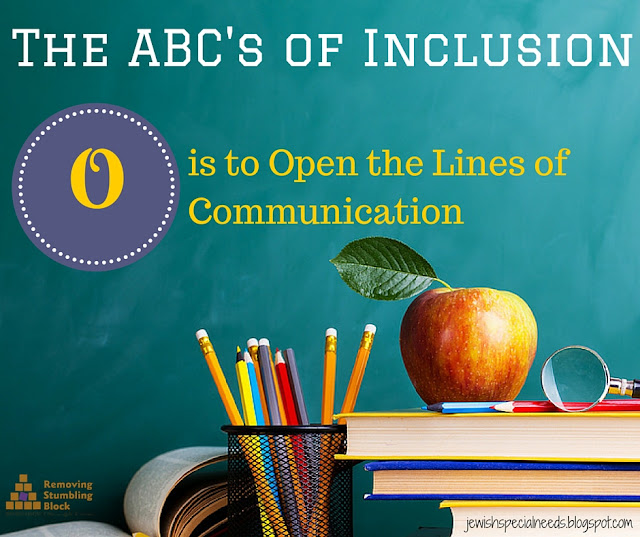Honest,
consistent communication is critical for successful inclusion. We need to
listen to one another, really listen. And we need to be forthcoming with all of
the information that can help each individual find success.
This
sounds so logical, right?
A
story:
There was
a boy in my program who was struggling through grade school. He was keeping up
academically, learning all of the skills that we were teaching. He was proficient
in Hebrew, he was reading English above grade level and he could answer most
questions posed by his teachers. But he struggled to make friends and had frequent
mood swings. His parents shared with us a classification of ADHD and we worked
hard to meet his needs. But I suspected there was more to the situation.
When I became his classroom teacher in seventh grade I took it upon myself to help him to develop relationships with his peers, despite the fact that his moods had become far less predictable. It became commonplace for him to break out in tears at some point during each class. I suspected that mental health issues were at play, but conversations with his parents did not lead us in that direction. They shrugged off these changes to hormones. Months later, during a bar mitzvah rehearsal, his mother offhandedly commented to the rabbi that his behavior was caused by Asperger’s Syndrome.
How much
differently this young man’s story could have unfolded if we’d had this
information all along! I still believe that there were mental health issues at
play, and maybe they revealed themselves later, but we certainly could have
helped to support him more appropriately if we’d had all the information.
A
colleague, who’s also a parent of a child with learning issues, wrote this wise
perspective:
There are many reasons
why parents don’t share information. We may be unaware of the details of our
child’s behavior – after all, we don’t see our child in a school setting. We
may think that with a religious school’s smaller class size and shorter period
of instruction, our kids can hold it together okay. We may have some of the
same glitches our kids have – and find it difficult to advocate, explain or
organize ourselves in such a way as to be able to share information in a
helpful way.But there’s another factor, one that might be hard for many of you – with your love for school and learning situations – to understand. For many of our kids school is not a good place to be. It is where they often feel most incompetent…. and a place where they have no friends. Parents spend a lot of time and energy fighting for our kids – trying to make our kids’ school experiences less negative. Many of us just don’t have the energy to expend in working with a supplemental school – in addition to our child’s secular school.
We must be sure the lines of communication are always open.
Subscribe to Removing the Stumbling Block so you never miss a post:

No comments:
Post a Comment